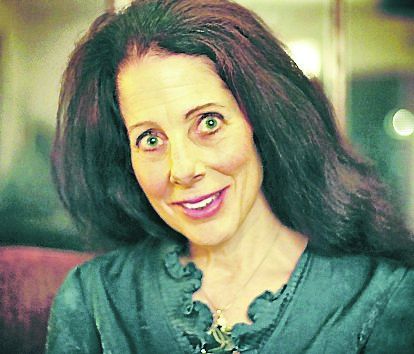For U.S. Catholics, a Powerful Echo of a Nightmarish Past
By Elizabeth Eisenstadt-Evans
The legacy of the sexual abuse scandals and revelations of coverups that shook this nation's Catholic church to its foundations is a mixed one. There's definitely been progress in redressing the wrongs done to young victims and in ensuring that they don't recur, even if the progress has been painful and slow. Such crimes, committed by some priests and hidden by some bishops, are far less likely to happen again, or to be tolerated if they do occur. Victims (though not all; many continue to suffer silently) have been helped. Thanks to procedures implemented in the wake of the sex abuse scandals, children are now much more likely to be safe in Catholic parishes and educational institutions. "There are very few current cases (of alleged child abuse) in process," said Charles Zech, who directs Villanova University's Center for Church Management and Business Ethics. “The current crop of priests has gotten the word of how wrong this is — and that they will be prosecuted. If they are caught now, the bishops won't protect them." But in ways both obvious and subtle, the American Catholic Church is still paying for the sins of fathers long gone — and the denomination's determined effort, in many cases, to silence victims. Spotlight a reminder When "Spotlight" received the Oscar for best picture, it was a reminder of the years when new abuse allegations against Roman Catholic clergy surfaced with alarming frequency. (To be clear, pedophilia by no means is confined to the Catholic church or to religious institutions.) Set in 2001, the drama portrays the efforts of a group of investigative reporters at the famed Boston Globe to document a massive coverup of clergy-perpetrated pedophilia within the Archdiocese of Boston. In the aftermath of the scandals, Zech said, dioceses have vastly improved their screening for aspiring clergy. "A long time ago, they were accepting anybody. A lot of those guys with problems weren't tested. Some still slip through, and there may be problems in the future. But it's a positive sign." Twenty years ago, he added, it was possible that the parents of a child who came to them reporting abuse might have deferred to the authority of the priest. That no longer is the case. "In this day and age, parents are aware that these things happen,” he said, “and at the slightest sign they would report it." Altoona-Johnstown case But the Pennsylvania grand jury report made public last week, which found nearly a half-century of abuse in the Altoona-Johnstown Diocese, compounded by apparent attempts by two bishops to silence and sometimes intimidate victims (not to mention reassigning errant clergy) is a reminder that many adults still live in the shadows of the horrors once inflicted on them. Without a change to the statute of limitations law in effect at the time of the abuse, there might never be justice for the hundreds of children allegedly molested by more than 50 clergy. Though bishops or other church officials who might be implicated in coverups can be removed or forced to retire, they are still often exempt from consequences that might provide a measure of satisfaction to abuse victims. Responding to the report, the Diocese of Harrisburg sent out a statement, which read, in part: "The sexual abuse of minors is an appalling sin and a crime. That is why the Diocese of Harrisburg has made strong and aggressive steps to combat it. The Diocese of Harrisburg maintains a zero tolerance policy regarding sexual abuse." Yet even a searing movie and a graphically detailed report cannot capture the toll the sins of some of its representatives have taken on an institution that was once beloved, revered and trusted by so many of its members. Authority eroding While the U.S. Catholic population has grown by 11 percent since 2005, Catholic marriages have decreased by 25 percent and infant baptisms have declined by 23 percent, Zech said, citing figures from the Official Catholic Directory. Part of the drop in baptisms might be due to Catholic families who are having fewer children — or aren't bothering to get their offspring baptized, he suggested. The moral authority of the American Catholic Church also has been eroded, said Zech, who describes the impact as "devastating," with the public less likely to listen to church authorities when they address other matters. "When the church speaks out on moral issues,” he said, “it lacks credibility." Although Zech credits Pope Francis both for reviving the church's sense of morale and for making it clear that bishops and clergy will be held fully accountable for misbehavior, Zech thinks it might take a generation to reverse the church flight trend. While clerical culture is considerably healthier and more accountable than it once was, he said it “doesn't help that there are so few priests and, as a result, they are being asked to live alone. Even a mentally healthy individual is under stress if he lives by himself for 30 or 40 years. " n Elizabeth Eisenstadt-Evans is a freelance writer and nonparochial Episcopalian priest.
|
.
Any original material on these pages is copyright © BishopAccountability.org 2004. Reproduce freely with attribution.
